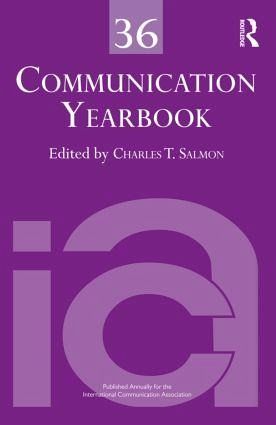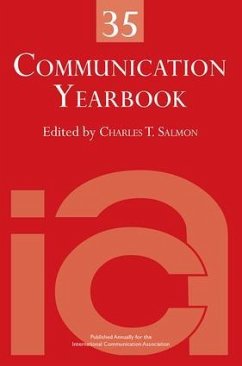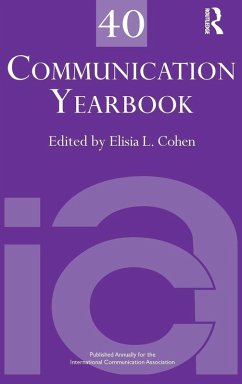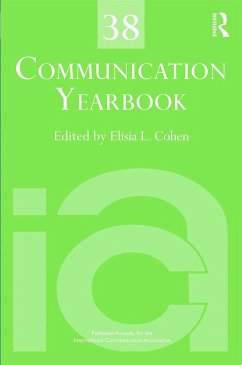
Communication Yearbook 36
Versandkostenfrei!
Versandfertig in 1-2 Wochen
187,99 €
inkl. MwSt.

PAYBACK Punkte
94 °P sammeln!
Communication Yearbook 36 continues the tradition of publishing state-of-the-discipline literature reviews and essays. Editor Charles T. Salmon presents a volume that is highly international and interdisciplinary in scope, with authors and chapters representing the broad global interests of the International Communication Association. The contents include summaries of communication research programs that represent the most innovative work currently, with internationally renowned scholars serving as respondents to each chapter. Offering a blend of chapters emphasizing timely disciplinary concer...
Communication Yearbook 36 continues the tradition of publishing state-of-the-discipline literature reviews and essays. Editor Charles T. Salmon presents a volume that is highly international and interdisciplinary in scope, with authors and chapters representing the broad global interests of the International Communication Association. The contents include summaries of communication research programs that represent the most innovative work currently, with internationally renowned scholars serving as respondents to each chapter. Offering a blend of chapters emphasizing timely disciplinary concerns and enduring theoretical questions, this volume will be valuable to scholars throughout communication studies.














